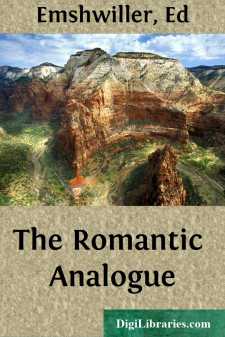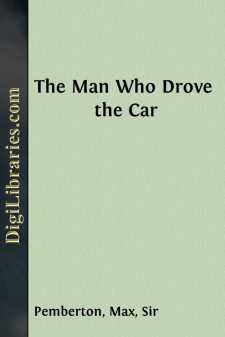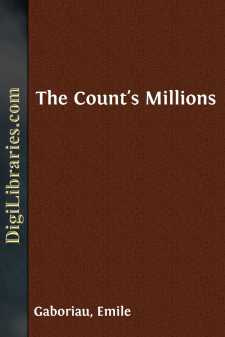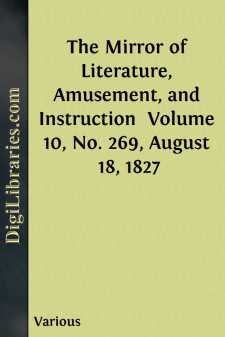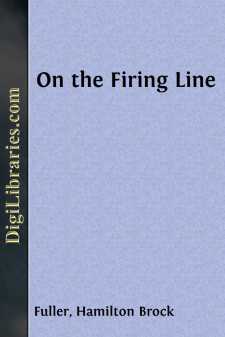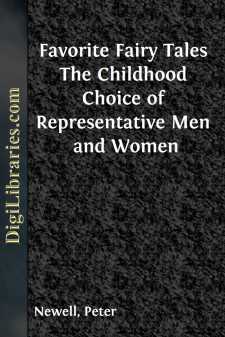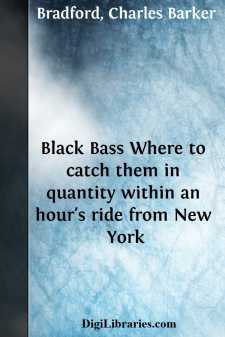Categories
- Antiques & Collectibles 13
- Architecture 36
- Art 48
- Bibles 22
- Biography & Autobiography 815
- Body, Mind & Spirit 144
- Business & Economics 28
- Children's Books 18
- Children's Fiction 14
- Computers 4
- Cooking 94
- Crafts & Hobbies 4
- Drama 346
- Education 58
- Family & Relationships 59
- Fiction 11829
- Games 19
- Gardening 17
- Health & Fitness 34
- History 1378
- House & Home 1
- Humor 147
- Juvenile Fiction 1873
- Juvenile Nonfiction 202
- Language Arts & Disciplines 89
- Law 16
- Literary Collections 686
- Literary Criticism 179
- Mathematics 13
- Medical 41
- Music 40
- Nature 179
- Non-Classifiable 1768
- Performing Arts 7
- Periodicals 1453
- Philosophy 65
- Photography 2
- Poetry 896
- Political Science 203
- Psychology 44
- Reference 154
- Religion 515
- Science 126
- Self-Help 85
- Social Science 82
- Sports & Recreation 34
- Study Aids 3
- Technology & Engineering 59
- Transportation 23
- Travel 463
- True Crime 29
Sort by:
by:
Ed Emshwiller
athematicians are just like people: old, young, fat, thin, male, female. This one was male, thirty-five, with steady brown eyes and a nice smile when he remembered to use it. His name was Norman Venner, and besides being a mathematical whiz generally, he had designed and built an electronic brain, or calculator, which was in some ways smarter than himself—and a lot less diffident. Electronic...
more...
CHAPTER IA Good Little Dream “I Elijah Peebles Martin, of the city and county of Harrison, in the state of Rhode Island, being of sound and disposing mind and memory, do make and declare the following, as and for, my last will and testament.’ ... I wish you’d take your head out of that barrel, Nancy, and listen to the document that is going to make you rich beyond the dreams of avarice.” “I...
more...
by:
Max Pemberton
THE ROOM IN BLACK They say that every man should have a master, but, for my part, I prefer a mistress. Give me a nice young woman with plenty of money in her pocket, and a bit of taste for seeing life, and I'll leave you all the prying "amatoors" that ever sniffed about a gear-box without knowing what was inside that same. I have driven plenty of pretty girls in my life; but I don't...
more...
by:
Holman Day
IN THE DUST OF THE LONG HIGHWAY The man who called himself Walker Farr plodded down the dusty stretches of a country road. He moved leisurely. He neither slouched like a vagabond nor did he swing with a stride which indicated that he had aim in life or destination in mind. When he came under arching elms he plucked his worn cap from his head and stuffed it into a coat pocket which already bulged...
more...
CHILD LIFE IN TOWN AND COUNTRY FANCHON FANCHON went early one morning, like Little Red Riding-Hood, to see her grandmother, who lives right at the other end of the village. But Fanchon did not stop like little Red Riding-Hood, to gather nuts in the wood. She went straight on her way and she did not meet the wolf. From a long way off she saw her grandmother sitting on the stone step at her cottage door,...
more...
by:
Emile Gaboriau
It was a Thursday evening, the fifteenth of October; and although only half-past six o'clock, it had been dark for some time already. The weather was cold, and the sky was as black as ink, while the wind blew tempestuously, and the rain fell in torrents. The servants at the Hotel de Chalusse, one of the most magnificent mansions in the Rue de Courcelles in Paris, were assembled in the...
more...
by:
Various
DUKE OF DEVONSHIRE'S VILLA, CHISWICK. The lamented death of the Right Hon. George Canning has naturally excited the curiosity of our readers to the villa in which that eminent statesman breathed his last; and we have therefore obtained from our artist an original drawing, which has been taken since the melancholy event occurred, and from which we are now enabled to give the above correct and...
more...
CHAPTER ONE Six feet one in his stockings, broad-shouldered and without an ounce of extra flesh, Harvard Weldon suddenly halted before one of a line of deck chairs. "I usually get what I want, Miss Dent," he observed suggestively. "You are more fortunate than most people." Her answering tone was dry. Most men would have been baffled by her apparent indifference. Not so was Weldon....
more...
by:
Peter Newell
INTRODUCTION WHAT are the best fairy stories? Are they not those which have lived most vividly in active minds? The ripeness of after life works its changes; but we are not dealing with literary judgments—rather with the choice of childhood which fortunately lingers in memory, whatever store of wisdom may come in later years. There is here no question of the new or unusual. On the contrary, it is the...
more...
Let me live harmlessly, and near the brinkOf Trent or Avon have a dwelling-place:Where I may see my fly or cork down sink,With eager bite of pike, or bass, or dace,And on the world and my Creator think:While some men strive ill-gotten goods t'embrace:And others spend their time in base excessOf wine, or worse, in war or wantonness.Let them that will, these pastimes still pursue,And on such pleasing...
more...


